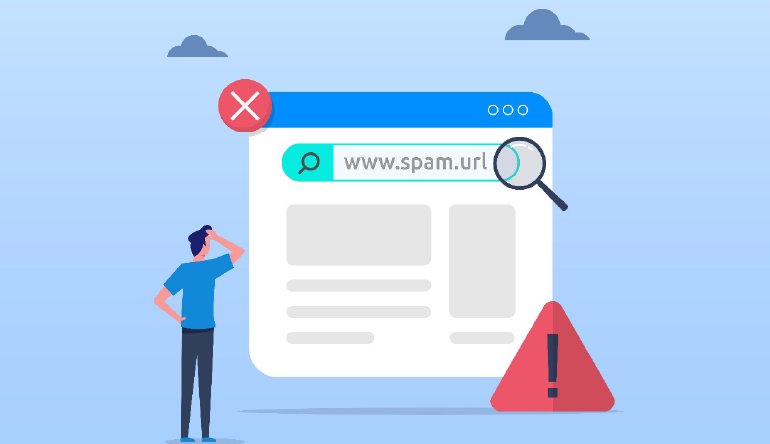We Provide High Quality & Cost Effective Services



Why Indexed Pages Don’t Rank & How to Fix It

Have you ever questioned why, despite being indexed, your website does not rank highly in search results? You've put in the effort, made sure Google can crawl your pages, optimized your keywords, and produced excellent content. Your rankings are still unsatisfactory, though. In actuality, indexing by itself does not ensure visibility. Before ranking content, search engines take into account a variety of SEO factors. We'll look at why indexed pages might not rank in this blog and how content optimization can increase your site's visibility in search results.
1. Indexing vs. Ranking: What’s the Difference?
Let's define indexing and ranking before we get into content optimization:
- Indexing: Your page is located by Google and saved in its database.
- Ranking: Google uses quality and relevancy to decide where your page shows up in search results.
Your page may not rank highly just because it is indexed. Content optimization can help with this!
2. Why Do Indexed Pages Not Rank?
Several reasons can cause your indexed pages to struggle with rankings:
A. Weak or Low-Quality Content
Content that is valuable, organized, and interesting is given priority by search engines. Google won't give your page a high ranking if it is shallow or unoriginal. For illustration, consider two websites that discuss "Best Skincare Routines." The 300-word blog post on Website A offers general guidance. Website B offers a 1,500-word guide that includes FAQs, expert insights, and product recommendations. Because Website B provides greater value, Google will give it preference.
B. Poor Keyword Optimization
Using the wrong keywords or keyword stuffing can harm rankings. The right balance of primary and secondary keywords is crucial.
Example:
Bad: “Our skincare routine is the best skincare routine for anyone looking for a skincare routine.”
Good: “Discover an effective skincare routine to achieve clear, glowing skin without harsh chemicals.”
C. Low Domain Authority & Backlinks
Google respects reputable websites. Your rivals will rank higher than you if their backlink profiles are stronger.
Solution: Obtain backlinks from reliable websites. Post guest posts on websites with a large domain name. Make content that
can be shared and is supported by research.
D. Slow Page Speed & Poor User Experience
Pages that load quickly and are easy to use are ranked higher by Google.
Example: Even if a page is indexed, it won't rank well if it has broken links, slow loading times, and intrusive pop-ups.
Fix: Make use of lazy loading and optimize your images. Boost the responsiveness of websites. Reduce the number of superfluous scripts.
3. Content Optimization for Better Rankings
Now that we understand the issues, let’s explore content strategies that can boost your rankings despite being indexed.
A. Write for Users First, Search Engines Second
Your writing should engage readers and provide solutions to actual problems. For instance, don't merely list diets
if your article is about the "Best Diets for Weight Loss."
Give: Explanations based on science. advantages and disadvantages of every diet. Meal plans and success stories. Content
that keeps users on the page longer is preferred by Google.
B. Use Strategic Keywords Naturally
Use keywords naturally in headings and subheadings rather than stuffing them in. the first 100 words. Meta descriptions and alt texts for images.
Example:
Instead of saying:
"Best skincare for dry skin can help dry skin stay hydrated"
Try:
"The best skincare routine for dry skin includes hydration-boosting ingredients like hyaluronic acid and ceramides."
C. Optimize for Featured Snippets & Voice Search
Google often picks concise, well-structured answers for featured snippets.
Example:
Question: What are the benefits of yoga?
Optimized Answer:
"Yoga improves flexibility, reduces stress, and enhances mental clarity. Regular practice can boost overall health and well-being."
For easy reading, use bullet points. Use question-based subheadings to organize your content.
D. Add Visual & Interactive Elements
User engagement is important to Google. Enhance readability by using images and infographics. (Google Image Search increases traffic.)
Videos can help visitors stay on your page longer. Charts and Tables (Simplify Complex Information)
Example:
Instead of a plain paragraph on “Healthy Foods for Weight Loss,” include a colorful table listing calories, benefits, and meal ideas.
4. Enhancing Technical SEO for Better Rankings
Beyond content, technical SEO also plays a crucial role in improving rankings.
A. Improve Internal Linking
Internal links help search engines understand site structure and keep users engaged longer.
Example:
- A blog on “Best Protein Sources” can link to:
- “Benefits of a High-Protein Diet”
- “Best Plant-Based Protein Alternatives”
B. Optimize Meta Titles & Descriptions
Users should be persuaded to click by your title and meta description.
Example:
- Boring Title: SEO Tips for Beginners
- Optimized Title: Boost Your Google Ranking: SEO Tips That Actually Work!
Meta Description:
"Struggling to rank on Google? Learn expert SEO tips to optimize your content and climb search rankings effortlessly!"
C. Ensure Mobile-Friendliness
Google prioritizes mobile-first indexing.
- Use responsive design.
- Avoid tiny fonts or unclickable buttons.
D. Fix Crawl Errors & Redirects
Use Google Search Console to check for:
- 404 errors (Broken links)
- 301 redirects (Outdated pages)
- Duplicate content issues
5. Keep Your Content Fresh & Updated
Google rewards regularly updated content. If your old posts aren’t ranking, refresh them!
Example:
An old blog on “Best SEO Tips 2022” should be updated to 2025 trends, including AI-driven SEO, Google’s latest algorithm changes, and new ranking factors.
Quick Tips:
- Update stats & research.
- Add new case studies.
- Refresh images & infographics.
Final Thoughts
The first step is to get indexed. Prioritize:
- Excellent, captivating content if you want to rank higher.
- SEO best practices and intelligent keyword usage.
- Websites that load quickly and are optimized for mobile devices.
- Authority-building techniques and backlinks.
Your website will rank where it should—on Google's first page—after putting these content optimization strategies into practice.
What Comes Next?
Start optimizing one blog at a time if your pages are indexed but not ranking. You'll soon notice the difference if you use Google Analytics to track your progress!
Would you like personalized SEO recommendations for your website?
Drop a comment below!




Comments
A Wordpress Commenter on Launch New Mobile App
Robert Jonson on Template: Comments
A Wordpress Commenter on Launch New Mobile App
Jessica Brown on Template: Comments